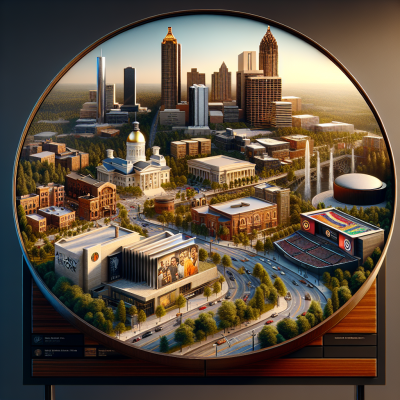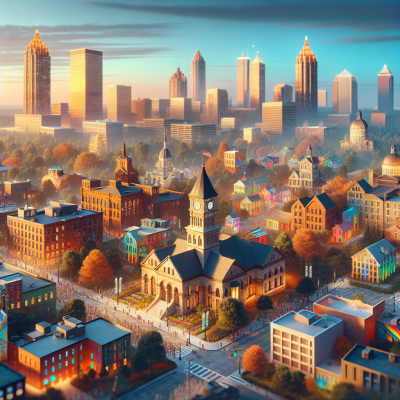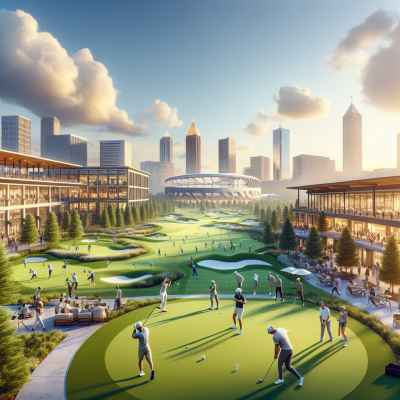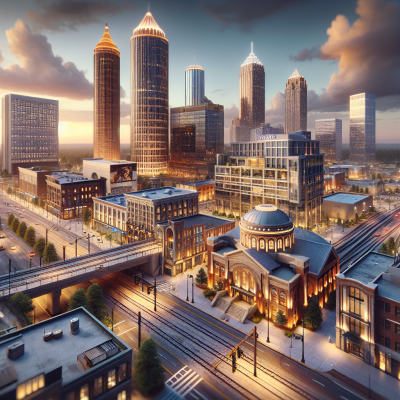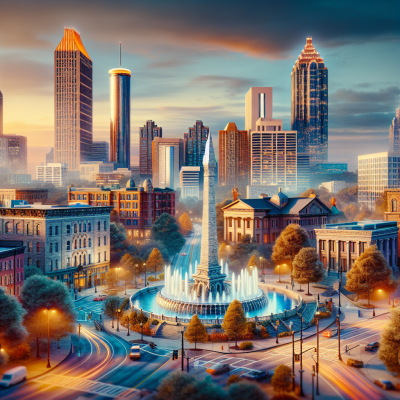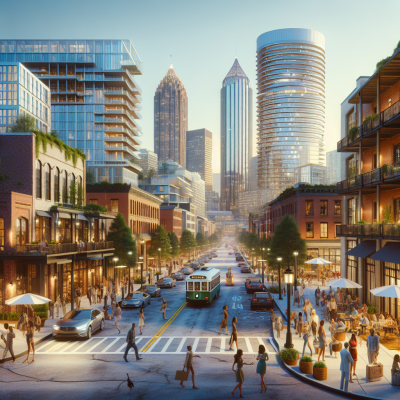
Future of Atlanta
Ongoing Urban Development
Atlanta is undergoing a significant transformation with ongoing urban development that is reshaping the city's landscape. One of the major drivers of this change is the BeltLine project, which is a comprehensive redevelopment endeavor aiming to convert 22 miles of historic rail corridors into a network of multi-use trails, modern streetcars, and parks. This project is not only enhancing connectivity across the city but also encouraging sustainable development and active lifestyles among residents.
Moreover, the Midtown area continues to see a surge in skyscraper projects that contribute to Atlanta's evolving skyline. These developments are aimed at accommodating the increasing commercial and residential demands of the growing population in the city. The integration of mixed-use spaces that combine living, working, and recreational opportunities is a trend that is redefining urban living in Atlanta.
In addition, smart city initiatives are being implemented to improve infrastructure, including advancements in public transportation and traffic management systems. These innovations are designed to accommodate the city's growth while addressing environmental concerns and enhancing the quality of life for all Atlantans.
Cultural Preservation Efforts
As Atlanta grows, there is a strong parallel effort to preserve its rich cultural heritage. Organizations such as the Atlanta Preservation Center are heavily involved in safeguarding historic neighborhoods and buildings, ensuring that the city's history is not lost amid rapid modernization. For instance, efforts to protect sites like the historic Sweet Auburn district, the birthplace of the Civil Rights Movement, underscore the city's commitment to honoring its past.
Community engagement plays a crucial role in cultural preservation. Initiatives that involve local citizens in restoration projects and historical tours help foster a deeper appreciation for Atlanta's historical assets. Moreover, the inclusion of cultural heritage education in schools is another strategy employed to ensure that younger generations recognize and value the city's diverse past.
These efforts are complemented by public policies that support the maintenance and adaptive reuse of historical structures, allowing them to serve modern functions while retaining their historical significance. This balance between new development and preservation is critical as Atlanta endeavors to retain its unique identity.
Atlanta’s Role on the National Stage
Atlanta has emerged as a prominent player on the national stage, largely due to its dynamic economy and cultural influence. Known as the capital of the South, Atlanta is a hub for major corporations, including global giants like Coca-Cola, Delta Air Lines, and UPS, which contribute significantly to the national and global economy.
In the cultural realm, Atlanta's vibrant music scene, particularly its influence on hip hop and R&B, has placed the city as a center of artistic innovation. This cultural prominence is further highlighted by major events such as the annual Atlanta Film Festival and Dragon Con, which draw attendees from across the country.
Politically, Atlanta plays a pivotal role in the national discussion on civil rights and social justice. The city's history as the birthplace of Martin Luther King Jr. and its continuing advocacy for equality and inclusion positions Atlanta as a leader in shaping progressive discourse.
As Atlanta continues to grow and transform, its influence both regionally and nationally is expected to expand, driven by ongoing urban development, cultural preservation efforts, and its strategic position as a leading city in the United States.



